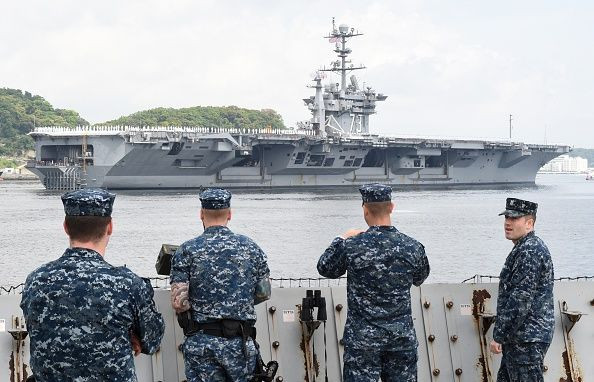Election 2016: Donald Trump Wants Japan To Pay More For American Military Facilities

Presumptive Republican Party nominee Donald Trump’s statements expressing his foreign policy views are becoming more specific, with his calls for American allies to shoulder a greater financial cost to maintain military facilities, the Japan Times reported. The New York businessman told CNN Wednesday that Japan should greatly up its contributions to maintaining American military facilities in Japan.
“Of course they should pick up all the expense. Why are we paying for this?” Trump said. “A lot of people like to say, ‘Oh, Trump wants Japan to arm.’ I don’t want them to arm. I want them to reimburse us for at least the cost.”
Japan has hosted American military facilities under the Treaty of Mutual Cooperation and Security since the 1950s. Revised in 1960, the treaty gives the U.S. the right to have military bases in Japan in exchange for promising to defend the country in the event of an attack. The treaty has been described as “one of the region's most important military relationships.”
Trump went on to describe Japan’s economy in positive terms to further question why the U.S. shoulders military costs. “We cannot go around subsidizing Japan, which is a behemoth economically with the cars and everything,” he said.
Japan budgeted $1.7 billion to host American military bases in 2015, the Japan Times reported. There are 109 American bases across Japan with approximately 50,000 U.S. personnel.
Trump’s remarks come at a volatile time in the region, with uncertainty over North Korea’s nuclear arms and growing tensions over territorial claims in the South and East China Seas. Japan and China both claim the islands in the East China Sea known as the Senkaku Islands to the Japanese and the Daioyu Islands to the Chinese.
Trump said in March that Japan and South Korea should become nuclear powers in order to protect themselves. His remarks prompted Japanese Prime Minister Shinzo Abe to respond, “Whoever will become the next president of the United States, the Japan-U.S. alliance is the cornerstone of Japan’s diplomacy.”
While Japanese Foreign Minister Fumio Kishida said, “It is impossible that Japan will arm itself with nuclear weapons.”
© Copyright IBTimes 2025. All rights reserved.





















